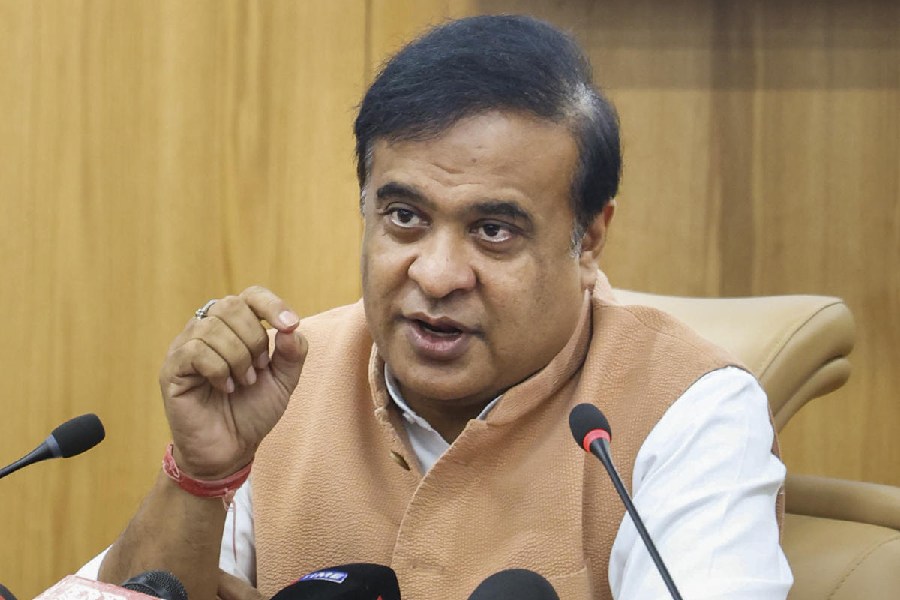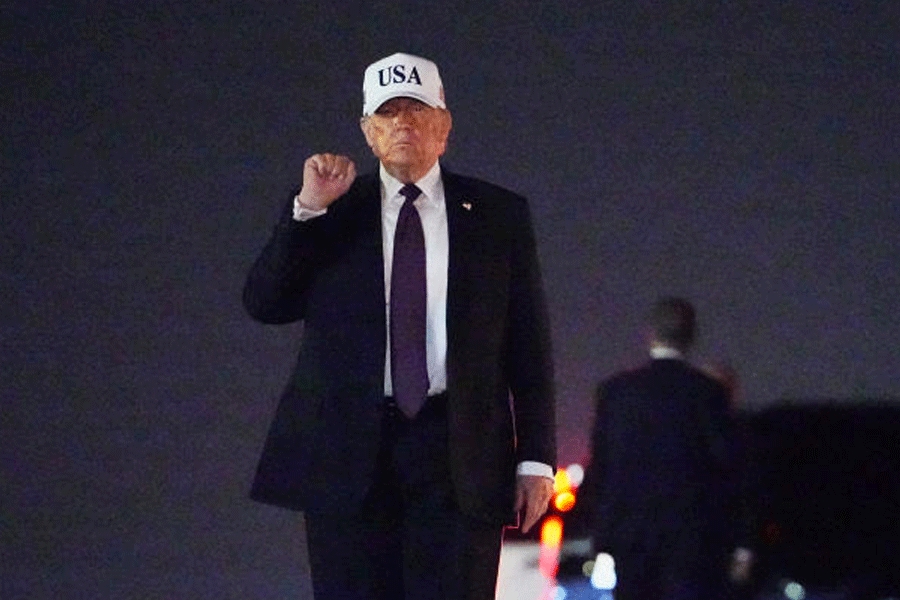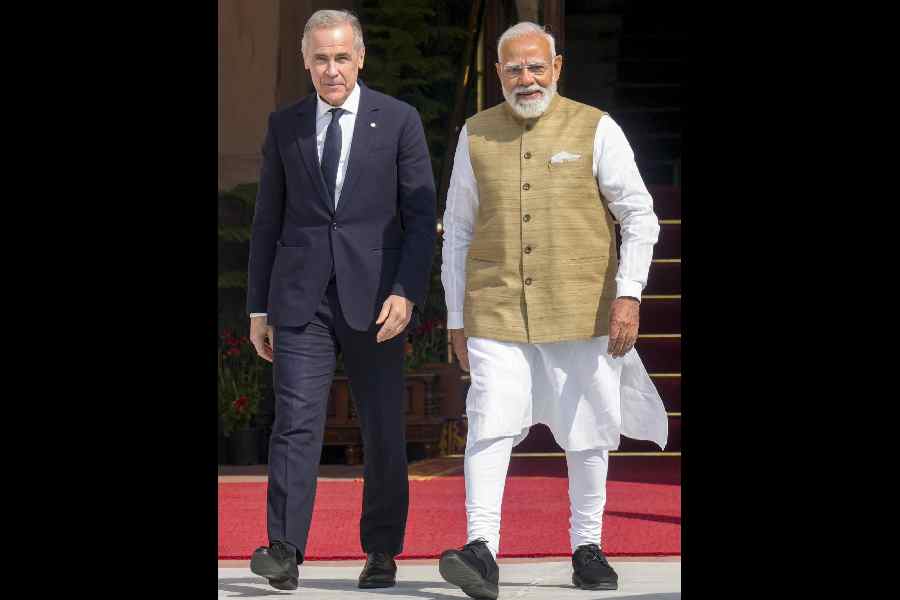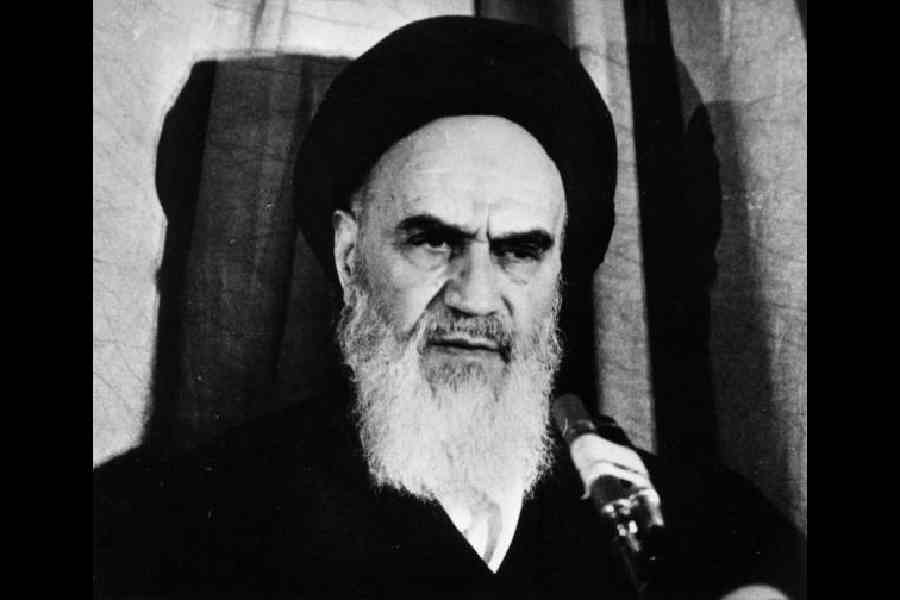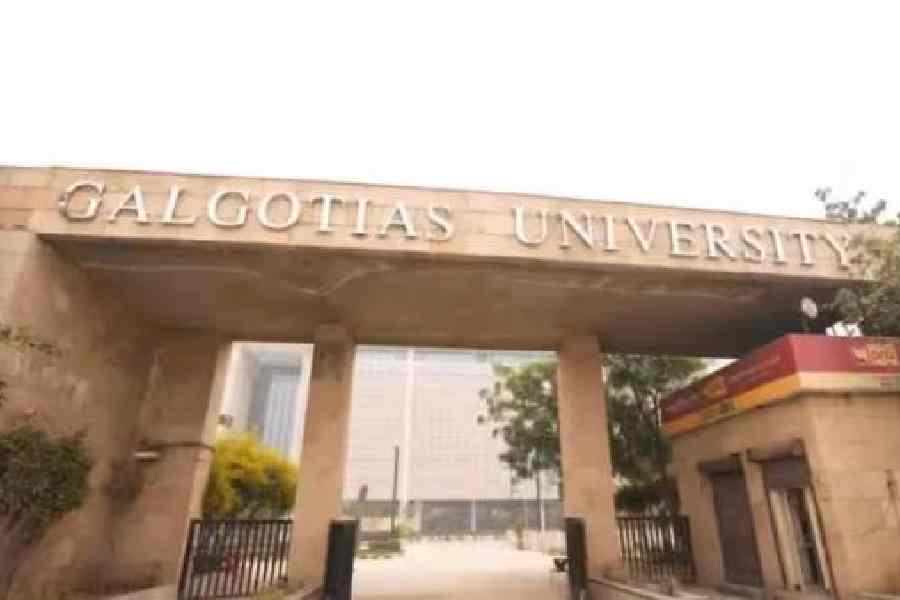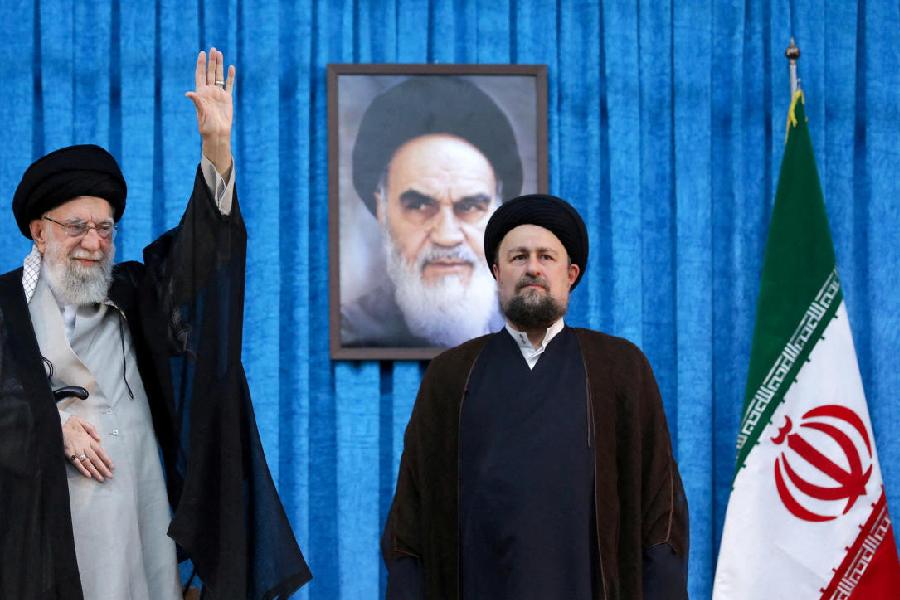Assam chief minister Himanta Biswa Sarma on Wednesday reiterated his government’s position of not allowing street protests against the amended Waqf Act, urging those opposed to the legislation to approach the Supreme Court, which is currently hearing the matter.
Sarma expressed concern over potential law and order issues if both supporters and opponents of the Act took to the streets, saying this could lead to conflict in the state.
Reacting to the chief minister’s statement, the All Assam Minorities Students’ Union (AAMSU) described his stand as “unconstitutional” and asserted that they would continue to hold peaceful protests while also moving the Supreme Court.
In a 1.26-minute video uploaded on X, Sarma said the amended Waqf law was now a legal reality.
“Whether it is AAMSU or anyone else, I have only one thing to say — the matter is in the Supreme Court. If anyone has something to say, let them say it in the Supreme Court. The issue will be properly discussed in court,” Sarma said.
He added: “If someone takes to the streets in Assam, people supporting the Waqf will also come onto the streets. This will lead to conflict. We don’t want conflict in Assam. I want to tell AAMSU that if you oppose the Act, there are others who support it. Let us all live in harmony and take Assam forward. Let AAMSU approach the court; the judge will decide. But nothing will be allowed on the streets — we have to accept this.”
His comments came amid the ongoing Supreme Court hearing on a batch of petitions challenging the constitutional validity of the amended Act, passed by the Lok Sabha on April 3 and the Rajya Sabha on April 4. The Act received presidential assent on April 5. The hearing is expected to continue on Thursday.
Protests have been held in several districts of Assam, with the AAMSU staging a statewide protest on April 9. A demonstration on the outskirts of Silchar on April 13 turned violent, resulting in a clash between protesters and police. Seven people were arrested, and prohibitory orders were imposed after stones were pelted during the altercation.
AAMSU president Rejaul Karim Sarkar told The Telegraph that the organisation would continue to stage peaceful demonstrations.
“Protest is the only tool we have in a democratic society. Our protest is against the government, not against any community or group,” he said.
“Why will there be any conflict during a peaceful protest? Why is the chief minister harping on the conflict point? If people don’t protest, the government will continue to take biased decisions like the Waqf Act,” Sarkar added.
He said protests were planned in Barpeta on April 24 and in Dhubri on April 25, adding that they would take a brief break during the panchayat polls scheduled for May.
AAMSU working president Md Imtiaz Hussain called the chief minister’s stand “unconstitutional”.
“We have a candlelight vigil in Tezpur on Thursday evening. Peaceful protest is necessary for a healthy democracy as it provides the government with a chance to revisit or review its decisions,” Hussain said.
Sarkar also confirmed that AAMSU would move the Supreme Court next week.
“We were waiting for the outcome of today’s hearing. We will file our petition against the amended Waqf Act next week,” he said.
On April 12, Sarkar had alleged that the state government was using police pressure to suppress protests against the legislation.

